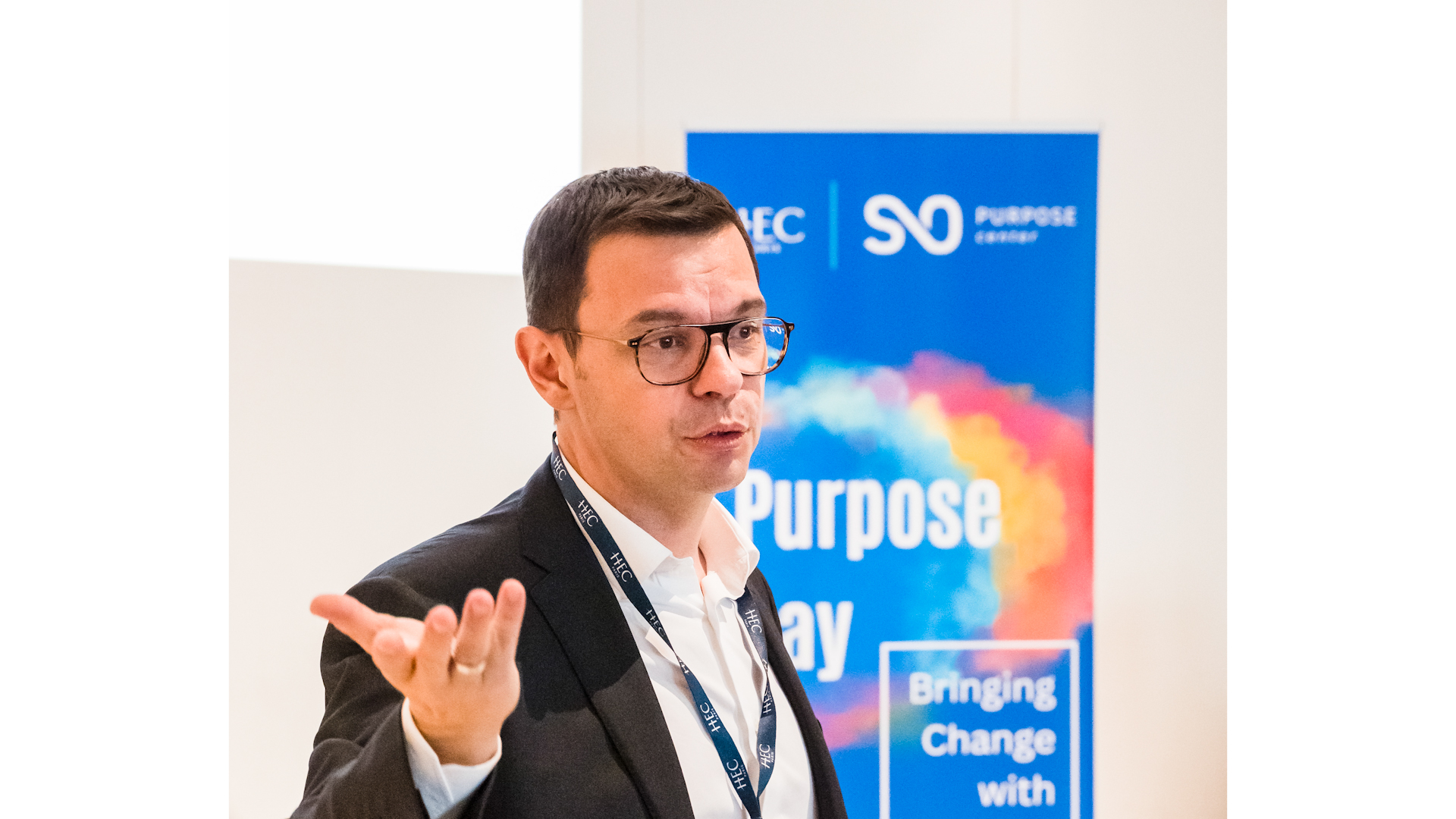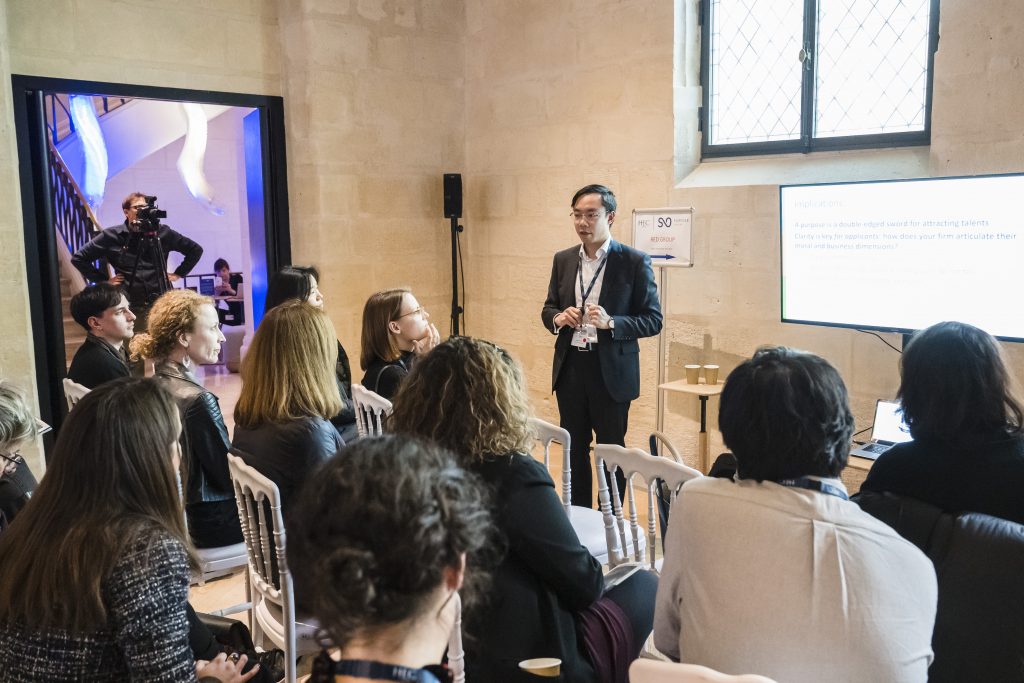Can a company have too much purpose ?

The Society and Organizations Institute (S&O) at HEC Paris held the first edition of its Purpose Day last Tuesday. The event aimed at discussing new ways to elaborate and incarnate purpose in leadership and corporations. Here’s HEC Stories report on a meaningful day.
Purpose. A vast concept that has gained incredible popularity in the media and public speechs these past few years. Mocked by the cynics, praised by self help gurus… And not always understood by employees and leaders in a company. « 80% of the front-liners do not know their firm corporate goal » is Rodolphe Durand’s opening statement on Purpose Day 2023 last Tuesday at central Paris enchanting PhilantroLab. For the HEC Professor and director of S&O, the Society and Organizations Institute, purpose is also a field of study. The aim of the institute is notably to encourage the rise of responsible managers. Along with the director, four PhDs students presented their last findings on purpose in the corporate world.
PURPOSE ≠ MORALS
Many people might associate purpose with preservation of the biosphere and hunger strikes. But what are we talking about exactly ? According to Rodolphe Durand, purpose is a « company’s reason of being in the long run ». While it is important to clearly formulate one, it doesn’t have to be moral. « We tend to think morals make us feel great. But in a given human population, 60% of the people are prosocial and take into account these moral and social aspects. 40% just don’t, the HEC professor said. These people are essential. They create disruption, innovation. »
As much as we would like corporations to move toward a greener world, openly communicating on a commitment regarding climate change could actually be counterproductive. « It’s just the state of expectations for the current labor market, said PhD student Chang-Wa Huynh (H.11), a PhD student at HEC, explaining his research on firms and employees’ judgements. He worked with more than 1200 participants in experimental studies. « We are measuring, I hope, some short term effects. People are not expecting organizations to take strong stances on the world. »

Chang-Wa Huynh, PhD Student at HEC Paris, presenting his findings on willingness to join a prosocial purpose-driven company ©S&O
For instance, companies like Patagonia extensively support the Global Climate Strike. The young researcher argues that profiles in HR of finance might be deterred from applying if signals are too strong. « They are less related directly to the purpose of the company and may not be interested because they don’t have the time to explore that many different forms of purposes. » A finding that could be unsettling given the sense of urgency around environmental issues. Besides its studies within corporations, S&O does work hand in hand with HEC Transition, an activists club who campaign for a sustainable world. Its members regularly call out leaders, like they did with Amundi CEO Valérie Baudson last January.
PURPOSE-WASHING : « DO NOTE HESITATE TO LEAVE »
Even when not related to climate change or social justice, finding purpose in a job is still a hot topic right now. The market is experiencing an epidemic of deserters (the infamous « quiet quitting ») and the rise of entrepreneurship shows a decreasing interest in putting companies at the center of our careers. « I think purpose has got to be created within groups. You can stay in an organisation and start an inside job of creating this purpose, Rodolphe Durand said. If you are facing purpose-washing though, do not hesitate to leave, keeping in mind you gained experience. » He also added a friendly reminder to his advice : a company stating a purpose by « putting a ping pong table into the office » is « an absolute nonsense. »
Two years after releasing his book A Broader Vision of Business, co-writen with Veolia CEO Antoine Frérot, Rodolphe Durand still believes in a purposeful capitalism for the future. He wishes the sustainability transition to scale up to a global level. « So many tools are available. Shareholders fondations, mission-driven companies, special investors… », he said to HEC Stories. The message we have to send the new generation is : understand the tools that are available to you now. Enter these organisations. »
While welcoming Purpose Day keynote speaker Denis Machuel, CEO of Adecco, Durand reminded the audience his approach to purpose all started in 2008. A « pivotal decade » during which capitalism shifted. Back then, teaching finance in business school was different. He found himself saddened by not having been able to infuse a sense of responsibility to his students. Today, S&O research shows that purpose, when matched with communication, autonomy for the managers or clarity, could increase a company’s performance and overall wellbeing.
Published by Estel Plagué

